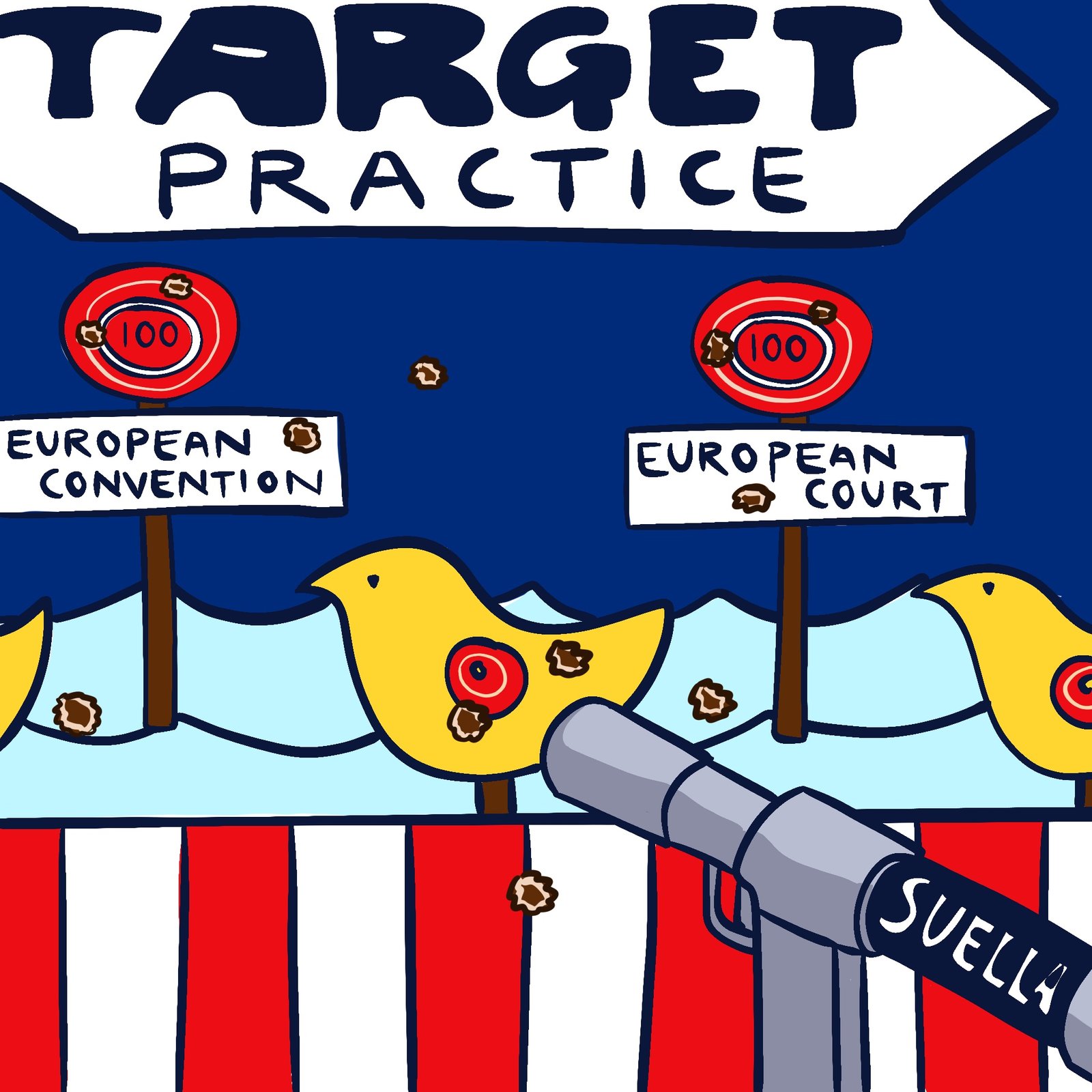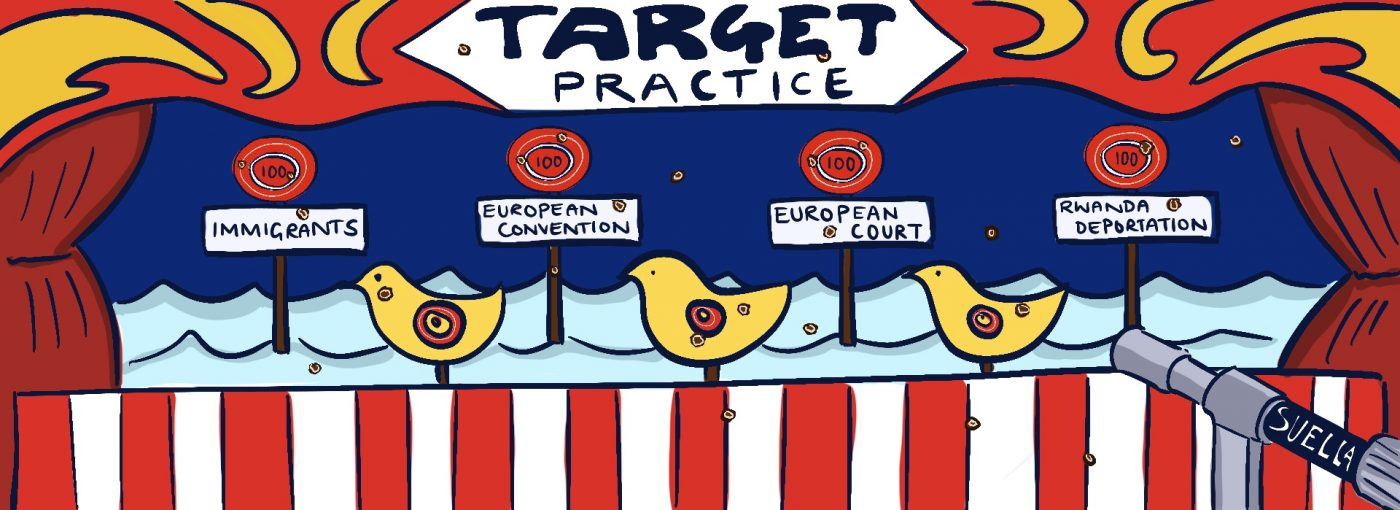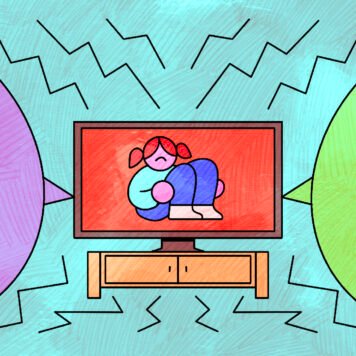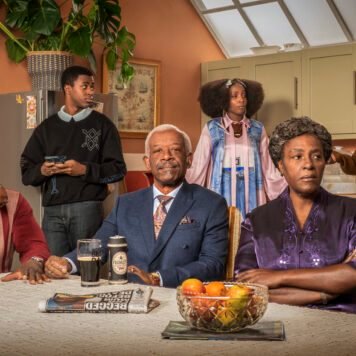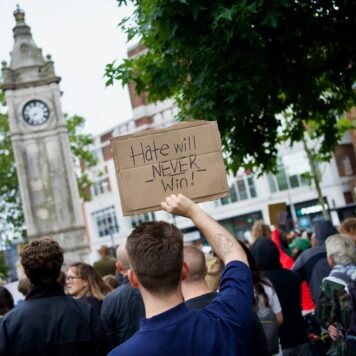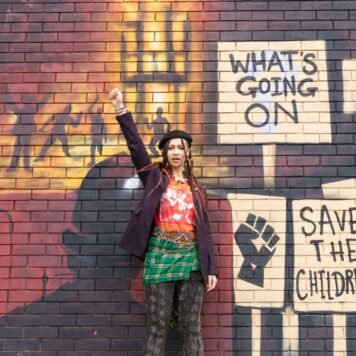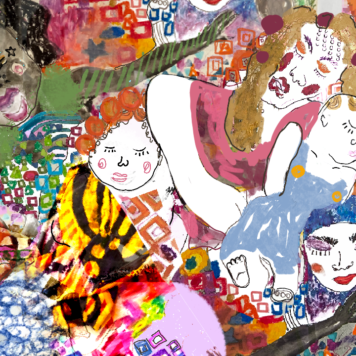Suella Braverman’s on-again-off-again relationship with her appointment as UK Home Secretary has been as confusing as it has been sinister.She was first appointed during the infamous 44 day term of former Prime Minister Liz Truss, then subsequently resigned after breaching ministerial code. She was then reinstated as UK Home Secretary just days after initially stepping down, following the new Prime Minister Rishi Sunak’s ascension to power. In this incredibly short space of time, one thing has been made clear: Braverman’s staying power is a clear warning from UK Conservatives about what is on the horizon for the migrants justice movement.
In her keynote speech at the Policy Exchange back in August, Braverman declared that “the fight for [European human] rights undermines democracy,” and accused both Critical Race Theory and Equality and Diversity Training of “tearing up the fabric of our society.”
One of the top objectives she’s set for the Home Office is to stop all boats crossing the English Channel. This has been criticised by both immigration experts and civil servants alike as a “pie in the sky” – an unlikely and impractical pledge which will only further fan the flames of xenophobia in the UK.
Desperately trying to make ‘offshore incarceration’ happen, she has pledged to double down on the Rwanda Plan – sending people seeking asylum in the UK on a one-way trip to the East African country – and is also publicly determined to put more refugees in detention centres at home, too.
She’s most recently made headlines due to her involvement and oversight of the illegal internment of people at Manston detention camp in Kent, where detainee numbers have reached 4,000 despite its maximum capacity of 1,600 people. There have also been reports of people’s belongings being seized, including phones, meaning they can’t contact loved ones. They have also been forced to sleep on the floor and denied access to legal and medical support. To make matters worse, there have been outbreaks of Diphtheria, norovirus, and scabies at the overcrowded site.
But it’s not just the specifics of Braverman’s past and present attacks on human rights which make her so dangerous: it’s also her vague, open-ended statements and ‘off-the cuff’ comments.
In a speech to the Bruges Group in 2019, she weaponised an anti-Semitic phrase by equating Conservative opposition to the left’s minority rights advocacy as “a battle against “Cultural Marxism.”
What is Cultural Marxism?
Cultural Marxism, the “conspiracy theory with an anti-Semitic twist”, is a right-wing idea which originated in the 1930s. It argues that political correctness has gone too far – and is in fact an assault on the ‘American’ (read: white, Christian) way of life.
Cultural Marxism has also made a significant imprint on the discourse of the British National Party (BNP). They describe Cultural Marxism as “a pernicious, destructive ideology [which] involves importing millions of immigrants from all around the world, particularly the Third World, along with their cultures and religions.”
Braverman tying herself to this vague battle against what the British right understand as Cultural Marxism – which doesn’t appear to have a clear end point or goal in mind – sets a dangerous precedent to the lengths to which she could go to maintain political relevance and position.
The real-life consequences of the casual co-option of racist language are devastating, and the October 30th terrorist attack on an immigration centre in Dover is a prime example of the danger of this. Following investigations of the man who firebombed the centre in his crusade against “illegal immigration,” it was found that he had a prolonged history of engaging with far-right social media content and its figureheads such as Tommy Robinson. Suella Braverman and the Conservative Party’s continued use of xenophobic rhetoric inevitably feed the flames of such attacks.
So, what are the limits to which Braverman will go to protect Britain’s borders?
The answers are not clear, which as we’ve learned through wars on terrorism and crime is a signal of one thing: the definition of who and what is a target is will only expand wider
Braverman’s appointment, however, does tell us the following:
- Numbers of people targeted for immigration detention are likely to increase.
- There are no plans to let up on the Rwanda deportation scheme.
- More people crossing the English Channel with the hopes of seeking asylum and refuge are likely to drown or face further violence.
Lived experience of detention: Sylvie’s story
Because the harmful impacts of immigration detention are often reduced into numbers and statistics, I wanted to hear from someone who had been through the experience themselves. I’m a member of the grassroots abolitionist group SOAS Detainee Support, and I sat down with Sylvie, a fellow member, who was detained in the infamous Yarl’s Wood immigration removal centre back in 2004.
“It was a hostile environment,” she explains. “I think the purpose of the prison officers is to make you feel uncomfortable, to be hostile in such a way to make you want to go home.”
The Home Office attempted to deport Sylvie four times in the span of nine months. She recounts that during their third attempt, “they beat me up four times as they forced me on the plane. The officer was horrible, telling us to go back to our country, saying we are wasting taxpayer money by being here.”
Thankfully, this abuse didn’t go unnoticed. “I cried a lot,” Sylvie continues. “The passengers were horrified by the situation and they started complaining to the pilot, who then refused to take me.” She’s thankful for the passenger’s reactions, knowing without them her story may have ended differently. “That day, I was lucky.”
Sylvie’s mistreatment led her into a state of deep depression and anxiety, which was actually noticed by officials and resulted in her receiving medication.
In spite of this, she notes “even if they recognise that you are ill, and that you are not fit to be in detention, the doctors in these centres are not there to help people. They don’t care about anyone’s life.”
Subscribe to shado's weekly newsletter
Exclusive event news, job and creative opportunities, first access to tickets and – just in case you missed them – our picks of the week, from inside shado and out.

Sylvie’s maltreatment continued, as detention officers attempted to take her to the Cameroonian embassy – even though Cameroon was the very country she had fled from before trying to claim asylum in the UK.
This put Sylvie under considerable mental stress. Forcing people to go to embassies is an uncommon practice, she tells me, because “it’s essentially divulging information about somebody who is in your country as a refugee.” However, there was a silver lining to this malpractice. “They exposed me, but in doing so I had the opportunity of meeting with a lawyer to plead the case that the Home Office had put me in danger,” she says.
Fortunately, Sylvie was able to obtain high quality legal advice and eventually won her civil case against the Home Office. However, this is far from the norm.
Access to legal aid has been in a state of crisis in the UK for many years. For refugees and people seeking asylum matters are even worse, with access or provision to legal aid either minimal or nonexistent.
Obtaining the right legal advice can be the defining point when navigating the complex asylum claims processes. This is another reason why the Rwanda deportations plan carries so much potential harm: gaining access to legal advice is difficult enough already in the UK, and deporting people to Rwanda threatens further complications, language barriers, and puts more strain on the country’s own internal demand for legal aid.
How the migrant justice movement is responding
The reinstatement of Braverman, the petrol bombing attack in Dover and the Manston Camp crisis all represent an emergency. However, they also provide an opportunity for the migrant justice movement as a whole.
Although Braverman may “dream” of deporting people seeking asylum to Rwanda, it is clear that the UK wide grassroots movement is not planning to give up resisting this oppressive plan of action, with people turning up in the hundreds to these protests at detention centres in far flung locations.
Braverman’s controversial statements have pushed the inhumane nature of the Hostile Environment to the forefront of public conversation, which hopefully will raise further awareness about this issue.
The movement has also been burgeoned by an ever-growing network of detainee support and visiting groups, immigration lawyers, migration justice groups and charities, and direct action groups across the UK who continue to organise demonstrations and campaigns against this border regime and build mutual aid networks of solidarity and support for those vulnerable to it.
But make no mistake: whilst Suella Braverman has been a central focus in recent conversations around the state of immigration justice in the UK, it would be naive for any of us to assume that she is simply a ‘bad apple’ in the bunch. Her predecessor Priti Patel and countless other Home Secretaries have shown a similar disdain for the rights of refugees, people seeking asylum, and anyone else vulnerable to the brutality of the UK Border Regime.
It is therefore more important than ever for us to build tangible, sustainable, mass support for grassroots migrant justice and anti-borders movements. It is only through this action that we will be able to eventually dismantle the border industrial complex and create a world of no borders and no prisons.
What can you do?
- SOAS Detainee Support, alongside other Migrant Justice organisations across the UK, continues to resist the UK Government’s hostile attempts to stem the rights of refugees, asylum seekers, and migrants. If you are interested in finding out more about our work or getting involved with our organising, please see our website for more information.
- Joining the Abolitionist Futures mailing list or even just visiting their website is a great way to find out more about the concept of Prison Abolition in general (and Border Abolition). The UK-based collective of community organisers and activists who run the group provide reading lists, reading groups, and various online events to immerse yourself in.
- The Joint Council for the Welfare of Immigrants have put together this “Resist + Persist: Tackling the Hostile Environment” toolkit of information and resources, to build knowledge about the Hostile Environment and ways to resist it.
- Bail for Immigration Detainees provide free legal advice, information and representation to thousands of people held in detention across the UK. On their website you can find research reports about Immigration Detention policy and practices, Legal Advice surveys with immigration detainees themselves, and briefings on the Nationality & Borders Bill. Opportunities to campaign, fundraise, and volunteer with BID are also welcomed.
- Read Border Nation: A Story of Migration by Leah Cowan, another must-read for those interested in understanding the complexities of immigration policy in the UK, its roots in the British Empire, how it is influenced by the media, and the profit motive driving its expansion.
- BAFTA-longlisted filmmaker Sonita Gale recently wrote, directed, and produced the award-winning feature-length documentary ‘Hostile,’ casting a light on the UK’s relationship with immigrant communities and the impact of the ‘Hostile Environment’ immigration policy on their lives. You can watch the film online via UK:BFI Player and Norway:VGTV.
- Joining a local Anti-Raids Network is one way you can help people resist immigration raids in their homes, workplaces and neighbourhoods. The site linked provides further information about local groups near you to join, what to do if you see a raid, your rights if you are subjected to immigration checks, and further information about what immigration raids are and how they contribute to the system of deporting and detaining people in this country.
- The Detained Voices collective run a website which publishes stories, experiences, and demands made by people held in immigration detention centres in the UK or those who have family members or partners in detention. It is definitely recommended to read through some of these experiences to gain an understanding of how the Hostile Environment impacts peoples lives and wellbeing.
- If you’d like to support the protestors who are facing trial for blockading Brook House detention centre and delaying a charter flight to Jamaica, please donate here to help cover their Legal fees and CPS costs.
